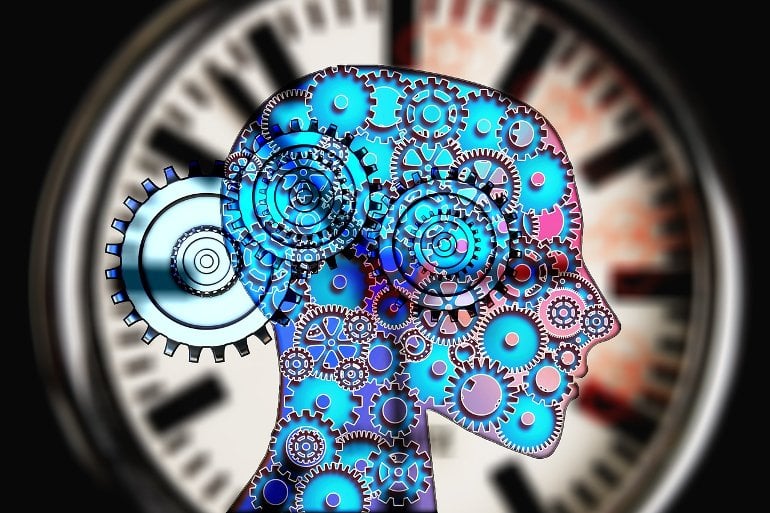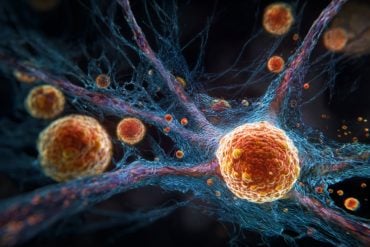Summary: Self-perception becomes blurrier over time, the further away you get from the present, researchers report.
Source: Dartmouth College
When you look at two objects close to you such as two leaves, it’s easy to tell them apart but when they are farther away from you, they become difficult to distinguish. The two objects become “compressed,” a basic principle of perception.
One’s concept of self, works the same way, according to a new study published in the Proceedings of the National Academy of Sciences.
If someone asks you, for example, if you think you’ll be calmer tomorrow than today, it’s easy to compare the two. But if you’re asked if you think you’ll be calmer in 10 versus 11 days, it becomes much more difficult to discriminate between the two days.
“Our self-concept becomes increasingly blurrier over time, the farther you get from the present,” says senior-author Meghan Meyer, an assistant professor of psychological and brain sciences. “As you think about yourself farther out in time, either in the past or in the future, you’re accessing a less distinguishable version of yourself.”
The research was comprised of four studies. In three of the studies, participants either rated their own personality traits or reported on their perception of self at different time points in the past and future.
The study found that relative to their present self, participants compressed their past and future selves. In the fourth study, participants were prompted with a pair of personality traits and had to select which one described them better at a given period of time while undergoing an fMRI scan.
The brain imaging allowed the researchers to determine how the brain organizes representations of the self across time.
Each time a participant thought about their self in the present, past, or future, the researchers could get a stamp of what their brain looked like. Those stamps became less distinguishable from one another as participants thought about themselves farther out in time.
“Even at the level of brain activity, we see evidence that our past and future selves become less distinctive as we consider ourselves farther out in time,” says Meyer.

The fMRI data was consistent with the results from the participants’ personality ratings, providing evidence of what the team calls the “temporal self-compression” effect.
“Our research provides a new way to think about how we organize our identity over time,” says first-author Sasha Brietzke.
In psychology, it is widely known that there can be problematic behaviors for some people when they think about their past or future, such as someone who doesn’t save enough for retirement because they can’t think that far ahead.
Meyer says, “future research on the temporal self-compression effect might help explain this type of behavior. People may have difficulty making good decisions for their future self or accurately recalling their past because they can’t see their distant self in clear view.”
About this perception research news
Author: Amy Olson
Source: Dartmouth College
Contact: Amy Olson – Dartmouth College
Image: The image is in the public domain
Original Research: Open access.
“Temporal self-compression: Behavioral and neural evidence that past and future selves are compressed as they move away from the present” by Sasha Brietzke and Meghan L. Meyer. PNAS
Abstract
Temporal self-compression: Behavioral and neural evidence that past and future selves are compressed as they move away from the present
A basic principle of perception is that as objects increase in distance from an observer, they also become logarithmically compressed in perception (i.e., not differentiated from one another), making them hard to distinguish. Could this basic principle apply to perhaps our most meaningful mental representation: our own sense of self?
Here, we report four studies that suggest selves are increasingly non-discriminable with temporal distance from the present as well.
In Studies 1 through 3, participants made trait ratings across various time points in the past and future.
We found that participants compressed their past and future selves, relative to their present self. This effect was preferential to the self and could not be explained by the alternative possibility that individuals simply perceive arbitrary self-change with time irrespective of temporal distance.
In Study 4, we tested for neural evidence of temporal self-compression by having participants complete trait ratings across time points while undergoing functional MRI. Representational similarity analysis was used to determine whether neural self-representations are compressed with temporal distance as well.
We found evidence of temporal self-compression in areas of the default network, including medial prefrontal cortex and posterior cingulate cortex. Specifically, neural pattern similarity between self-representations was logarithmically compressed with temporal distance.
Taken together, these findings reveal a “temporal self-compression” effect, with temporal selves becoming increasingly non-discriminable with distance from the present.







